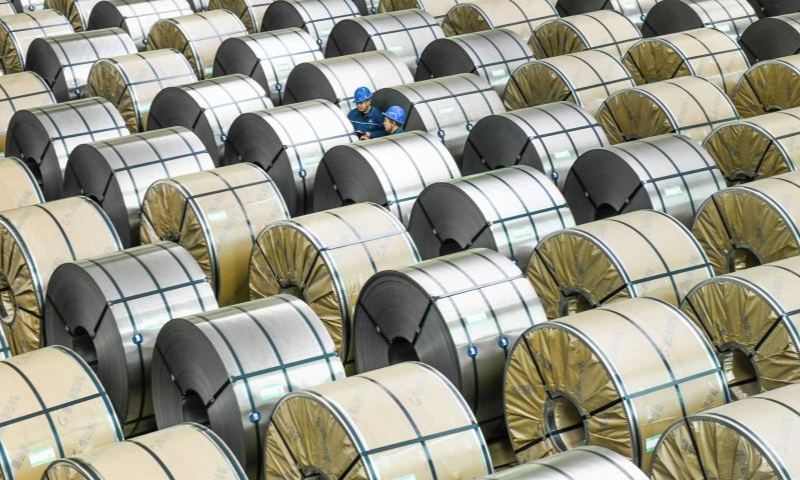Tariffs on steel imports considered threat to global supply chains

China has urged the United States to rectify its mistakes and rejoin the multilateral trading system, calling for cooperation with other countries to address mutual concerns through fair and equal consultation, said the Ministry of Commerce on Thursday.
The ministry's comments follow US President Donald Trump's recent announcement of a plan to impose a 25 percent import tax on all steel and aluminum shipments entering the country.
Speaking at a weekly news conference in Beijing, He Yongqian, the ministry spokesperson, said this is a typical example of unilateral and protectionist behavior, and many countries have explicitly voiced their opposition. There is also significant domestic opposition within the US.
READ MORE: Trump signs plan to impose 'reciprocal' tariffs on trading partners
"In fact, as early as 2022, a World Trade Organization expert panel concluded that US Section 232 of the Trade Expansion Act of 1962 violated WTO rules," said He.
The Section 232 tariff measure is a US trade law that allows the US president to impose tariffs or other trade restrictions on imports if they are deemed to threaten national security, according to the US Department of Commerce.
However, rather than lifting the existing Section 232 tariffs on steel and aluminum, the US further raised tariffs on aluminum products, significantly harming the interests of other countries, undermining the rules-based multilateral trade system, and disrupting global supply chains, she added.
The China Iron and Steel Association, a national industry organization representing China's steelmaking sector, said on Thursday that Washington's tariffs on steel and aluminum imports are essentially an act of trade protectionism.
Even though China's steel exports to the US accounted for only 0.8 percent of China's total steel exports and the short-term impact is limited, this move by the US may encourage other countries to follow suit over the long run, thereby reducing the competitiveness of China's steel exports, said the Beijing-based association.
From a medium to long-term perspective, tariff hikes will negatively impact the industrial and supply chains of the global steel sector, including China's steel sector, said Zhang Longqiang, CISA's deputy secretary-general.
Liu Ying, a researcher at Renmin University of China's Chongyang Institute for Financial Studies, said that taking protectionist measures will disrupt the international trade order, lead to an increase in both tariff and non-tariff barriers, and cause a sharp decline in international trade, further slowing down the global economic recovery.
Saying that imposing tariffs will directly squeeze businesses' profit margins, Liu said that the rising costs will force companies to readjust their supply and industrial chain layouts, resulting in supply chain fragmentation.
Similar views were shared by Peng Bo, a researcher at the Chinese Academy of International Trade and Economic Cooperation in Beijing.
"In turn, this fragmentation not only increases corporate costs, but also reduces efficiency, thus impacting global economic stability," Peng said.
The multilateral trading system relies on open cooperation among countries, and retaliatory actions taken by affected countries will inevitably trigger trade disputes, Peng added.
ALSO READ: US tariffs seen as threat to its economy
Facing challenges such as the new US tariff policies and supply chain disruptions, Ningbo Dafa Chemical Fiber Co Ltd, a textile and chemical raw material manufacturer in Ningbo, Zhejiang province, has been actively exploring new possibilities in emerging markets, according to information from Ningbo Customs.
"In the past, our exports were mainly to the US and Europe," said Wang Ling, the company's sales director.
"We have continuously sought greater cooperation opportunities with Southeast Asian and Latin American countries in recent years, starting with neighboring countries like Vietnam and Pakistan and gradually expanding to markets such as Peru and Colombia," Wang said.


